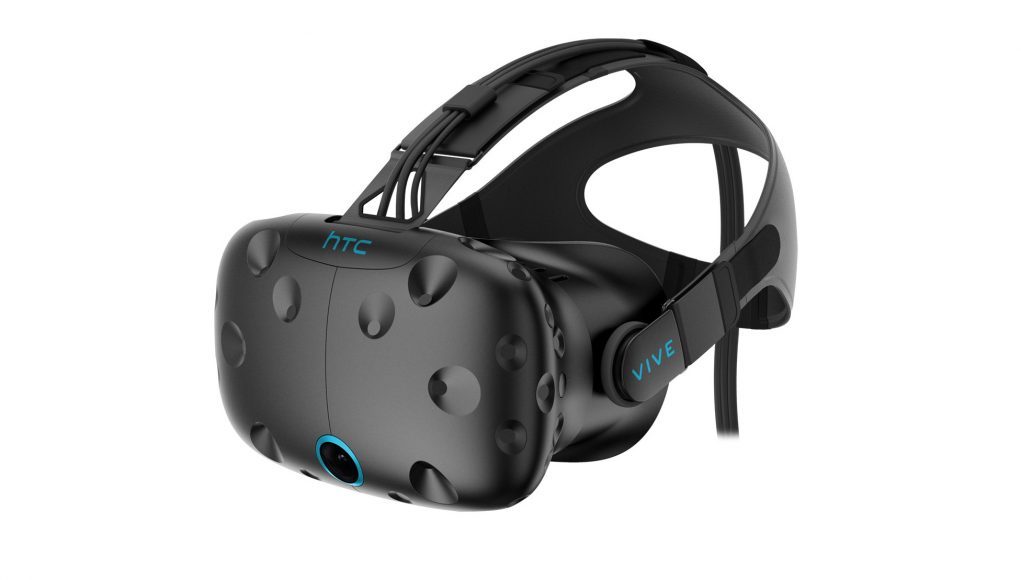After launching the consumer HTC Vive in early 2016, the company began offering a $1,200 ‘Business Edition’ version of the headset which is essentially the same system but with dedicated support, an enhanced warranty, and bulk buying options. Going forward, however, the consumer and Business Edition systems will become increasingly differentiated products.
Speaking Alvin Wang Graylin, China Regional President of Vive, at CES last month, I asked if the company saw the need to create separate product lines to serve the needs of in-home VR use vs. out-of-home usage.
“We actually do, honestly. What we’re finding is that the business users are less price sensitive but they really care about other things like manageability, range of use, comfort for long term use, and other things” said Graylin. “So the kind of things that I think that were just [announced, like the Vive Deluxe Audio Strap], that’ll probably be adopted initially moreso by the business market than by the consumer. Wireless upgrade from TPCAST—were getting a lot of business and out out-of-home entertainment users who want to use that.”
 With VR picking up in China’s out-of-home market in a significant way, non-consumer Vive usage may presently be outpacing that of the consumer in-home sector. Last month, HTC announced touted two major Vive initiatives focused on non-consumer sectors, Viewport Arcade and Viveport Enterprise.
With VR picking up in China’s out-of-home market in a significant way, non-consumer Vive usage may presently be outpacing that of the consumer in-home sector. Last month, HTC announced touted two major Vive initiatives focused on non-consumer sectors, Viewport Arcade and Viveport Enterprise.
Viveport Arcade is a dedicated app ecosystem and management platform that connects VR apps that are made for out-of-home play with VR arcade operators running pay-to-play HTC Vive setups. VR games made for out-of-home use are usually more ‘arcadey’, allowing quick pick-up-and play gameplay which is fun in short bursts, compared with in-home VR games where users may want a lengthy narrative, long play sessions, and persistent progression. Viveport Arcade also handles app purchasing/licensing in a way that’s built around the arcade business model.
Viveport Enterprise is a similar VR app ecosystem designed to bring VR productivity apps into businesses.
Between Viveport (the consumer version of their VR app store), Viveport Arcade, and Viveport Enterprise, HTC has identified and is beginning to serve these three segments in software, but when it comes to hardware, they’re all using the same headset, controllers, and tracking tech. But over time that will change.
“There will be increasingly more distinction between the Vive [consumer] and [business] versions over time and more manageability features in the software that’s needed by enterprise/business use,” Graylin tells Road to VR.
 And while out-of-home entertainment businesses are finding VR increasingly attractive, VR has huge potential in vertical markets but the complexity of today’s VR systems makes adoption harder in some verticals than others, an area that Graylin says HTC will focus on in 2017.
And while out-of-home entertainment businesses are finding VR increasingly attractive, VR has huge potential in vertical markets but the complexity of today’s VR systems makes adoption harder in some verticals than others, an area that Graylin says HTC will focus on in 2017.
“The other thing that we’re gonna be working on this year is all about vertical industry stacks; essentially turnkey solutions that you can sell to medical, to education, to travel, or whatever. And I think that’s going to really open up and make it a lot easier for non-home users to adopt this technology.”
With that said, Graylin also suspects the industry will see next-gen VR headsets hitting the market every one to three years. So far the company has said very little about the next version of the Vive headset.







